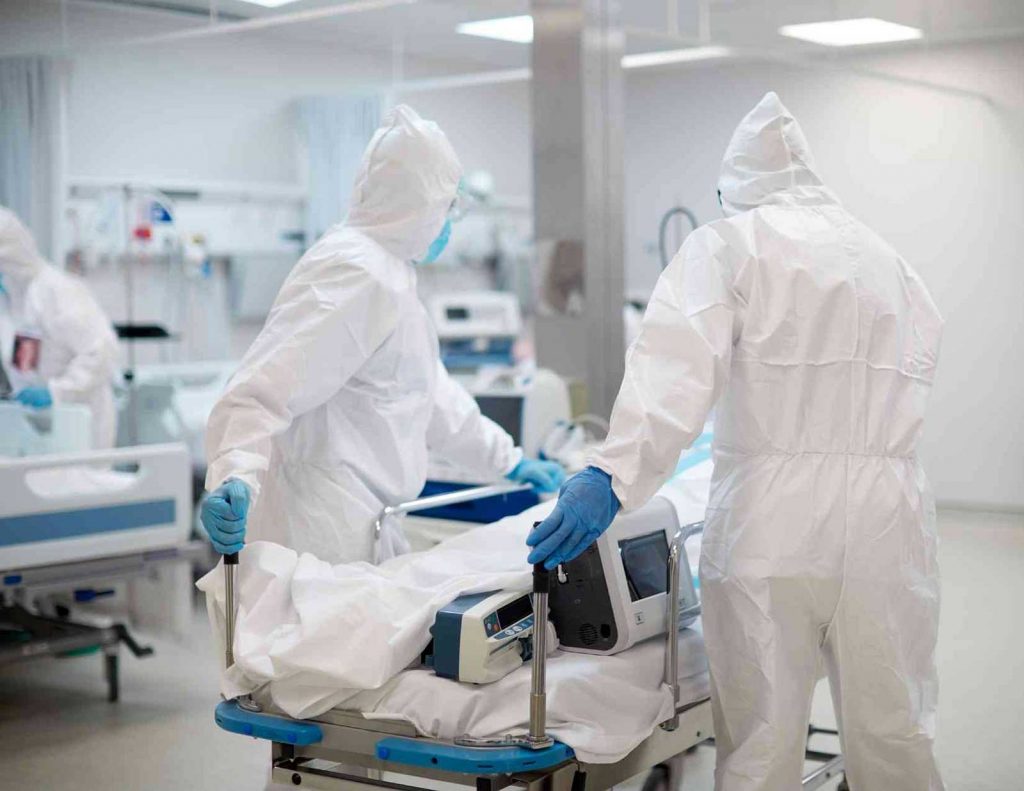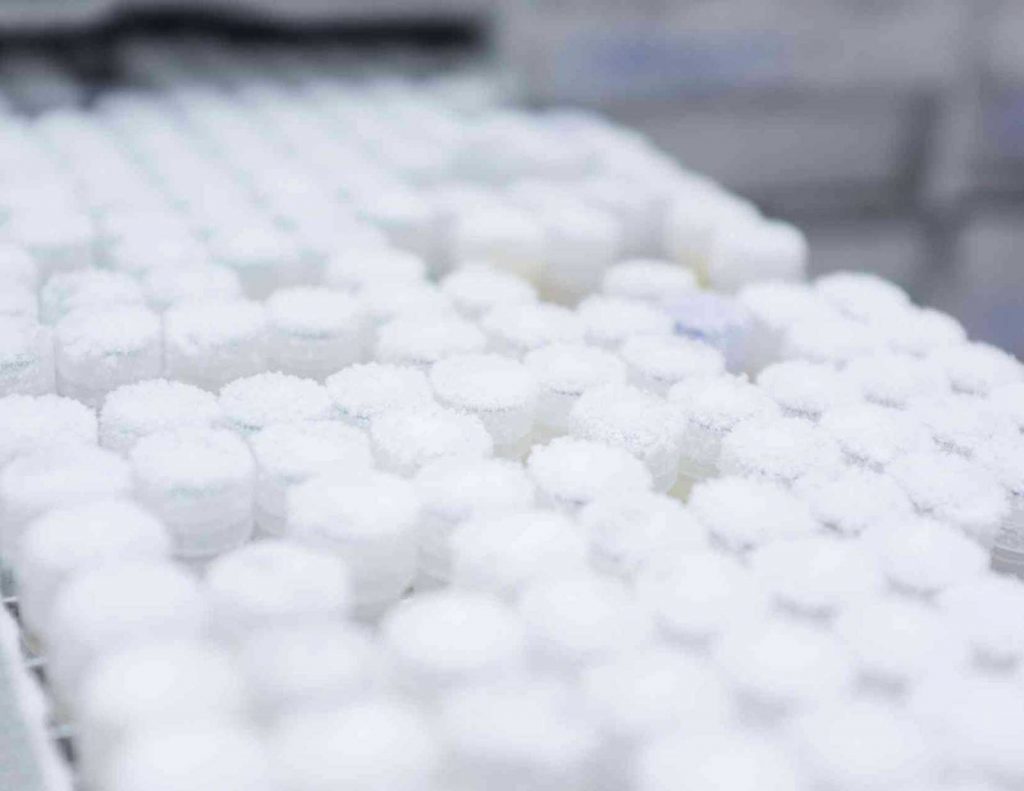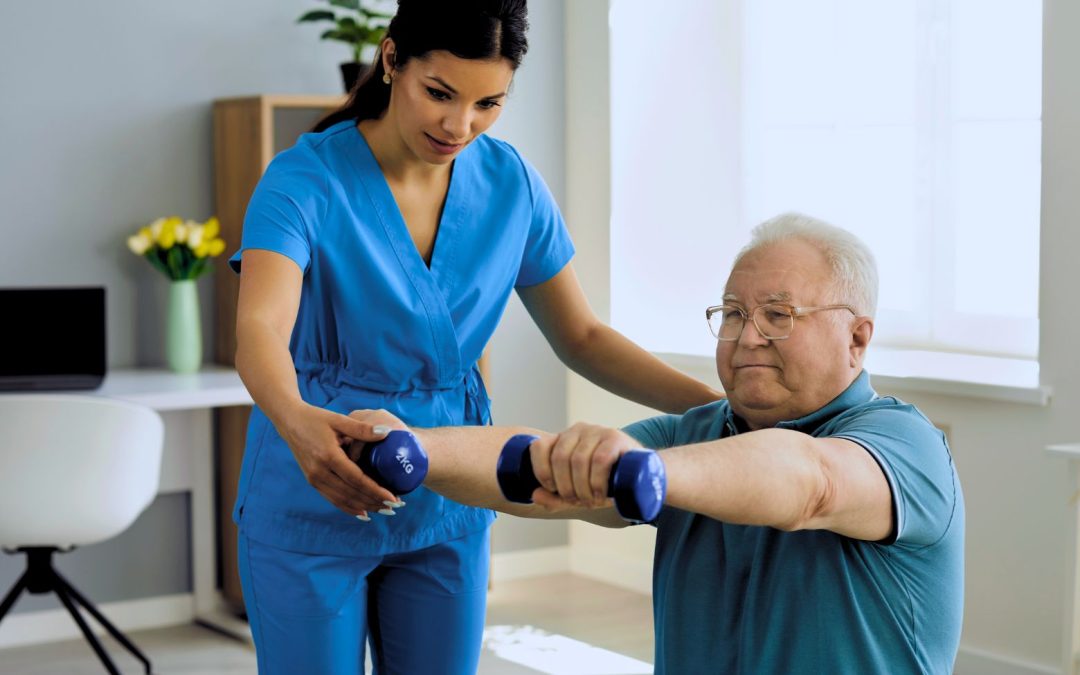Industry News | Inside Scoop Virtual Nursing isn’t New — So Why Does it Feel That Way? Virtual nursing and telemedicine aren’t new concepts. They date back to the 1960s and have related uses in NASA. However, the COVID-19 pandemic brought the concept of virtual...
The Johnson and Johnson Vaccine Has Arrived… Now What?
- The Johnson and Johnson vaccine is easier to transport and store, and only requires a one-dose shot.
- Studies show this latest FDA authorized vaccine is 100% effective at preventing COVID-19 related hospitalizations and deaths.
- Despite three vaccine options now available to the public, patients are unlikely to find a vaccination clinic where they will be allowed to choose which version they want administered.

Morgan Curry, BSN / RN
Intensive Care, Outpatient Surgery, Aesthetics, Education, and Nursing Leadership
Say hello to the Johnson and Johnson vaccine, which was just recently authorized by the FDA as a sing-dose shot to protect against COVID-19. With three options of vaccines to combat the COVID-19 pandemic now available (Moderna, Pfizer /BioNTech, and now Johnson and Johnson), many have questions regarding which option they will receive, and which one is the best.
“Now that there are three different vaccine variants, do we get to choose which one we receive?”
“What is the best decision?”
“Are there differing side effects?”
“Is the new vaccine as effective as the others?”
“What makes this one different than the Pfizer and Moderna vaccines?”
Overall, we as consumers of modern healthcare are more aware and educated on vaccines than ever before. We have watched the pandemic unfold week after week, month after month, claiming many lives, wreaking havoc on the healthcare system and healthcare workers, straining our relationships with family and friends, isolating people, and putting lives on hold for the last year. The wait for vaccine release has been much anticipated and researched.
Now more than ever, we want an end to the madness, peace of mind for ourselves, our families, and our patients. As the first doses of the Johnson & Johnson vaccine are rolling out, this third option appears to be less effective in comparison to its predecessors. But is it really? So now what?
These practical differences allow the Johnson and Johnson vaccine to potentially reach a larger amount of people, due to the single dose nature and easier transport/storage requirements.
The Johnson and Johnson Vaccine Difference
The Johnson and Johnson vaccine is a single dose injection, does not need to be reconstituted, and can be stored in a regular refrigerator for long periods of time. This marks a huge contrast to the Pfizer and Moderna vaccines, both of which require two-dose injections, extremely low-temperature storage, and must be reconstituted.
These practical differences allow the Johnson and Johnson vaccine to potentially reach a larger amount of people, due to the single dose nature and easier transport/storage requirements. Additionally, there will not be as much of a logistical factor in ensuring second dose follow-up, leading us to ask the question that really matters.
“How effective is it?”
Effectiveness
Every vaccine has clinical trials and data to back up the research portion of its clearance and access. This includes signs and symptoms, efficacy, mortality, and other observed data.
If a vaccine states that it is 90% effective at preventing illness, that means that people receiving the vaccine were 90% less likely to become sick compared to those who received the placebo version of the vaccine.
The Johnson and Johnson vaccine trial looked at different patient outcomes throughout different parts of the world.
Within the United States, the vaccine was found to be 72% effective at preventing moderate to severe cases of COVID-19. That number of effectiveness varied as the vaccine was tested in other parts of the world.
In Latin America, where another COVID variant was found, the vaccine was shown to be 66% effective. However, when researchers looked specifically at the vaccine’s protection against the most severe forms of the illness, the effectiveness was 86%. It also proved to prevent 100% of hospitalizations and deaths related to COVID-19. This is a drastic contrast to the Pfizer/BioNTech and Moderna vaccines.
Bonus! The Johnson and Johnson vaccine’s lasting effectiveness was shown to increase over time, with more than 90 % protection after a month and a half following the administration of the vaccine.
So, in short, this means that if a person did contract the virus, their symptoms were more easily managed at home, and they were less likely to end up with severe illness from COVID-19… aka no hospital stay and no vent time!
At first glance, the Johnson and Johnson vaccine, with a 72% effectiveness, appears to be an inferior option to the Pfizer/BioNTech and Moderna vaccines which both report a 95% effectiveness rate in their phase 3 clinical trials. However, health experts are saying that the differing percentages should in no way suggest that the Johson and Johnson vaccine is 23% LESS effective.
Why is that?
People should not compare Pfizer and Moderna vaccines’ effectiveness directly to the Johnson & Johnson vaccines.
Ok…but again, why?
Because the trials for each of the different types of vaccines were conducted differently, the vaccines were studied at different junctures within the pandemic when different variants of the virus were in circulation.
The virus, as we know, is constantly changing and evolving. So, potentially, if the Pfizer/BioNTech and Moderna vaccines were in stage 3 clinical trial with the same viral variants and stage of progression as the Johnson and Johnson vaccine, they would more than likely have the same effectiveness.
“What are the benefits?”
The Johnson and Johnson vaccine can be stored at regular refrigeration temperatures comparatively to the other two vaccines, making it easier to transport and distribute to areas such as mobile drive-thru sites or into rural areas.
With the single dose capability, it has the potential to reach more people in a shorter amount of time, especially those with logistical barriers.
Dr. Muriel Jean-Jacques explained this distribution advantage to NBC News, stating, “It has literally taken the National Guard and the military to get the vaccine out effectively to many rural communities. How wonderful it is to be able to do that much more simply.”
Additionally, researchers found a decrease in the reported severity of vaccine side effects with the Johnson and Johnson vaccine, compared to the Pfizer/BioNTech and Moderna counterparts.

How Does It Work?
The previous Pfizer/BioNTech and Moderna vaccines are both an mRNA type of vaccine. The Johnson and Johnson vaccine is different in the way in which it causes an immune response within the body.
It is known as an adenoviral vector vaccine. Adenovirus is a virus that can cause symptoms of a common cold. It works by giving cells genetic instructions to produce antigens. This method of providing immunity differs from mRNA in that it uses a harmless pathogen, that has been genetically modified, that is different than the one the vaccine is targeting.
An mRNA vaccine gives instructions to the cell on how to make a small piece of the ‘Spike Protein’ unique to SARS-CoV2. The antibodies produced in this process are specific to SARS CoV2, priming your immune system against future infection of the virus.
Side Effects
The side effects that have been reported with the Johnson and Johnson vaccine in clinical trials are what you would normally expect from any vaccine. They include pain at the injection site, redness at the site, muscle pain, headache, fatigue, nausea, and fever.
Dr. Paul Goepfert, a University of Alabama professor of medicine and director of the Alabama Vaccine Research Clinic, explained to NBC News that, “[The Johnson and Johnson vaccine is] better tolerated than the Pfizer or Moderna vaccine in terms of local, what we call reactogenicity. [It] causes less people to have a sore arm, less people have what we call systemic side effects, including fatigue, fever, myalgias [and] headache.”
Is the Johnson and Johnson vaccine seeming better already?

Can I Choose the Vaccine I Want?
The general expert consensus on “which vaccine should I get” is to take the first vaccine made available to you.
Experts agree that if you have the option to receive a vaccine, take it. It is hard to predict, as it stands now, when there will be enough supply of all available vaccines to allow people to choose which one they want to receive.
The goal is to vaccinate as many people as quickly as possible, to have the possibility of returning to normal functions of life and society.
What decision will you make?
Love what you read?
Share our insider knowledge and tips!
Read More

How to Deal with Loneliness on Travel Nurse Assignment
Travel How to Deal with Loneliness on Travel Nurse Assignment It is common for nurses on travel assignment contracts to experience homesickness and loneliness. Understand how you can protect your own mental health, such as scheduled communication with your support...

Therapeutic Interventions: A Nurse’s Guide
Inside Scoop Therapeutic Interventions: A Nurse’s Guide Learn common therapeutic interventions nurses can use to support patients in treatment. Understand how to effectively administer medication to patients while keeping them calm and informed. Review...


